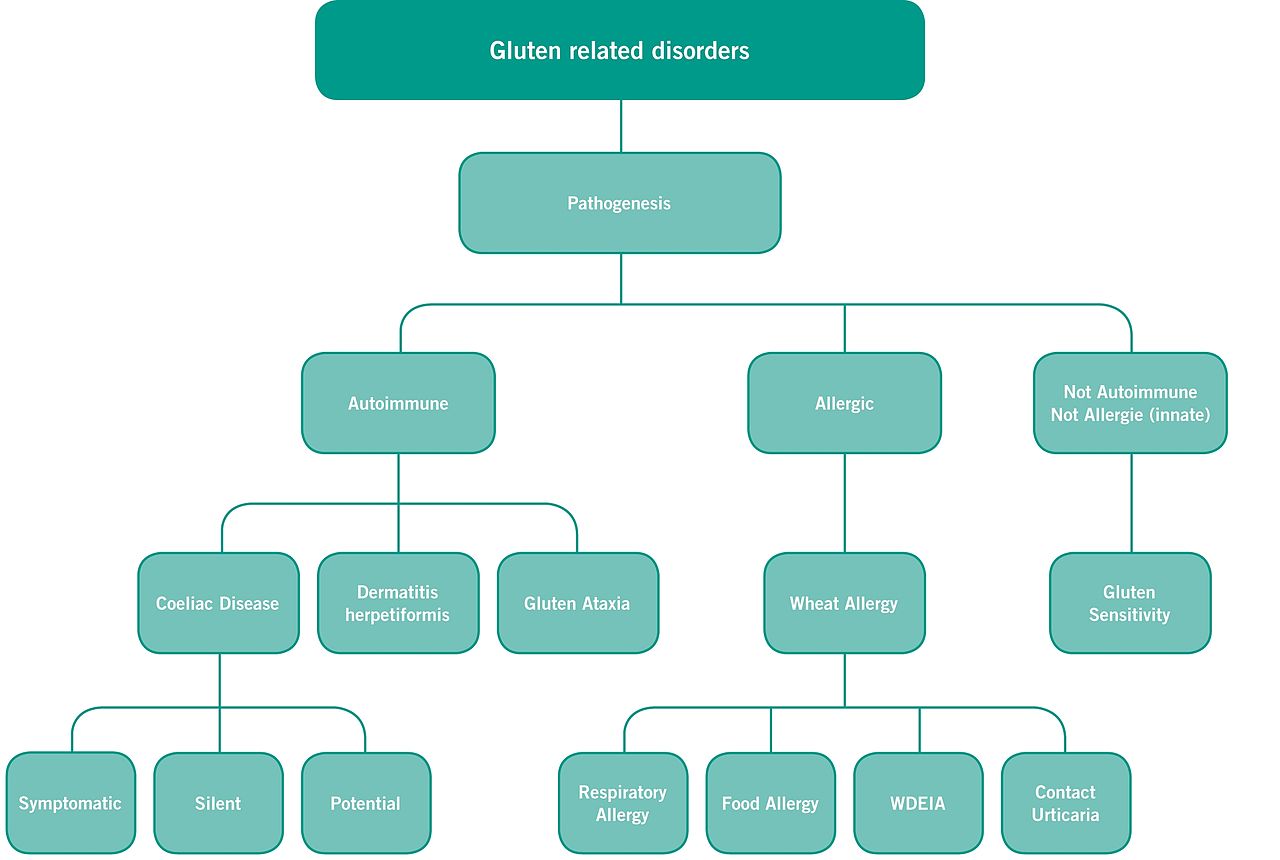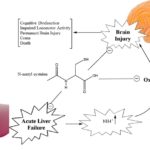Gluten: The Hidden Dangers
Introduction: Fact or Fad?
Is the gluten scare a real health concern, or just another fad diet? Many say it is a fad. Some say that it is only dangerous if you have an intolerance or an allergy. Many people also demonize wheat outright as a whole no matter the circumstances.
Others advocate heirloom wheat only, or only sprouted and fermented grains. No wonder everyone is confused! In this article, we are going to get into the science of gluten, and what you need to know about it.
Wheat and Grains
Before we talk about gluten, we need to talk about wheat as gluten is a protein found in wheat (among other grains). The wheat we eat today is nothing at all like the wheat that we ate 100 years ago.
Besides the fact that most wheat is also genetically modified, almost all wheat has also been heavily hybridized. Hybridization on its own is not a bad thing. The problem arises when we create plants that can live in very poor soil.
Wheat is a huge part of our culture and economy, but we are usually getting a nutrient deprived product that is often covered with toxic pesticides, and other contaminants.

Hybridization: The Hidden Curse
Its one thing to hybridize or crossbreed foods for more flavor, nutrition, or even for a certain appearance, but the majority of the hybridization and cross-breeding is done to sell more product. The problem is that we end up breeding food that looks to be the biggest, brightest, and best even in poor conditions, but what we end up with is simply a poor quality food. We end up with food that has very little nutritional value even when it is organic.
Organic Wheat
Organic wheat is definitely a much better option than GM wheat, but in the end, we are eating a food that is high in carbohydrates, and low in just about every other nutrient thinkable. Why is organic wheat better?
Organically grown wheat will not be genetically modified, and it will not be covered in pesticides. Their is another huge problem however. Many sources claim that even non-GM and organic wheat is often sprayed with glyphosate (often called “ripening”).
Round Up: Glyphosate
Glyphosate is a weed killer created by Monsanto. It does not directly interrupt human metabolism, but it does affect our gut microbiome. According to NIH studies, glyphosate kills good bacteria while allowing the “bad bugs” to thrive.
Glyphosate has also been reported to be connected to non-Hodgkins Lymphoma, however Monsanto vehemently denies this, and is trying to overturn the ruling by the WHO and IARC who did the study.
But Wait…There’s More!
A meta analysis of many studies published by the NIH suggests that glyphosate could in fact be responsible for the rise in Celiac’s Disease. Celiac disease is when your body attacks itself (usually the intestinal lining) when any amount of gluten is present.
“Celiac disease is associated with imbalances in gut bacteria that can be fully explained by the known effects of glyphosate on gut bacteria. Characteristics of celiac disease point to impairment in many cytochrome P450 enzymes, which are involved with detoxifying environmental toxins, activating vitamin D3, catabolizing vitamin A, and maintaining bile acid production and sulfate supplies to the gut. Glyphosate is known to inhibit cytochrome P450 enzymes. Deficiencies in iron, cobalt, molybdenum, copper and other rare metals associated with celiac disease can be attributed to glyphosate’s strong ability to chelate these elements. Deficiencies in tryptophan, tyrosine, methionine and selenomethionine associated with celiac disease match glyphosate’s known depletion of these amino acids. Celiac disease patients have an increased risk to non-Hodgkin’s lymphoma, which has also been implicated in glyphosate exposure. Reproductive issues associated with celiac disease, such as infertility, miscarriages, and birth defects, can also be explained by glyphosate. Glyphosate residues in wheat and other crops are likely increasing recently due to the growing practice of crop desiccation just prior to the harvest. We argue that the practice of “ripening” sugar cane with glyphosate may explain the recent surge in kidney failure among agricultural workers in Central America. We conclude with a plea to governments to reconsider policies regarding the safety of glyphosate residues in foods.” (NIH Study Reference)
Simply put, glyphosate from wheat, or any other food for that matter, can cause a variety of symptoms ranging from nutritional, mental, emotional, and even hormonal effects. Read our Full Article on GMO’s for more on glyphosate.

What If I Have Clean Wheat?
There are many problems with wheat even if you are getting clean heirloom wheat, and if you do not have an allergy or sensitivity to it. Gluten itself breaks down in our gut into gluteomorphins which are small chains of amino acids that have some side effects.
Gluteomorphins (as in morphine) act as opiates in the body. They activate μ-endorphin receptors (Greek letter mu) much like the casomorphins in the casein protein found in milk. This creates a host of issues, not the least of which are digestive issues.
Food Coma: Mystery Solved
Have you ever seen someone eat a plate of chicken alfredo, only to see them promptly pass out? This is most likely because of gluteomorphins and casomorphins. This is what causes the “food high” of most comfort foods.
This is also what causes the effect of constipation because μ-endorphin receptors suck all the water out of our intestines. If food sits for too long in our intestines, then it starts to decay which causes a lot of digestive problems.
The Great Digestion Question
 What happens when food goes through our intestinal tract too slowly? First of all sugars and carbohydrates will ferment if they are not properly digested releasing alcohol into our system. Proteins will putrefy in the intestinal tract releasing ammonia.
What happens when food goes through our intestinal tract too slowly? First of all sugars and carbohydrates will ferment if they are not properly digested releasing alcohol into our system. Proteins will putrefy in the intestinal tract releasing ammonia.
While both of these compounds can cause brain damage in high quantities, the main effect we will see from this is the overgrowth of the wrong types of flora in our gut which can lead to intestinal permeability.
Feeding the Problem
Gluten and casein can have this deleterious effect on our digestion as well as various thickeners like guar gum, xanthan gum, and carrageenan if they are over-consumed. Eating lots of thick or sticky foods with very little fiber can have these digestive effects.
For best brain health, we want to minimize digestive problems, and inflammation because all of that affects our brain over time. These foods that impair digestion can create a host of problems ranging from autoimmunity to colon cancer.
Read our Full Article on Digestion for more on how to heal your gut.
What About in Moderation?
Gluten can be eaten safely in moderation as far as constipation goes, but gluten also contains a protein called gliadin that causes intestinal permeability even in people who do not have wheat allergies!
Intestinal permeability can cause a host of problems like reduced immune system function, elevated stress levels, excess inflammation, autoimmunity, and even cancer! Intestinal permeability typically happens slowly.
This means that you could probably get away with eating gluten every now and again as long as it is not a staple of your diet. However, if you are embarking on a diet for healing, then I highly recommend removing it at least for a period of time.
Read our Full Article on Leaky Gut and Intestinal Permeability if you think you may have compromised digestion.

Thyroid Factor
All grains, even those without gluten, can cause disruption of the thyroid gland which regulates body temperature, metabolism, and many other things. Have you heard of stress raising belly fat? Well that’s true!
Cortisol (the stress hormone) increases store of belly fat. If you are allergic to wheat, then it will raise your cortisol levels causing weight gain in the belly, but even if you are not allergic to wheat, all grains can disrupt our thyroid gland.
This leads to weight gain evenly across our whole body, and this weight is very difficult to get rid of unless you address the underlying cause. Low thyroid hormone levels will also have you feeling exhausted!
“Grain Brain”

The two time New York Times best selling author of “Grain Brain”, Dr. David Perlmutter has coined the term grain brain because of the negative effects of grains (especially gluten containing grains) of grains not just on our brain, but on our minds too.
Celiac disease has been connected to schizophrenia, depression, anxiety (panic), and even bipolar disorder in statistically significant ways in clinical studies! To quote Dr. Hadjivassiliou:
“gluten sensitivity can be primarily, and at times, exclusively, a neurological disease”. (study)
What If I Don’t Have Celiac Disease?
There are distinct differences between Celiac Disease, gluten allergy, gluten sensitivity, and now Non-Celiac gluten sensitivity which is even more difficult to detect because we cannot detect it using the same biomarkers as we do for Celiac.
The quote below shows again that problems with gluten connect directly back to neurological function even if you do not have Celiac disease! The science is pretty solid on this subject, and I think that we can safely say this is not a “fad”
“An overlap between the irritable bowel syndrome (IBS) and NCGS (Non-Celiac Gluten Sensitivity) has been detected, requiring even more stringent diagnostic criteria. Several studies suggested a relationship between NCGS and neuropsychiatric disorders, particularly autism and schizophrenia.” (study)

Enjoy Your Life…
At Feed a Brain, we always say “Enjoy your life, and do so sustainably”. Life is not a marathon of suppressing your desires. Life is meant to be savored and enjoyed, but if our health is the cost, then the enjoyment quickly fades.
If we never enjoy our lives, then what was the point of keeping our bodies healthy for so long? If you are on a healing journey, then I highly recommend cutting our gluten at least for a few months to heal your gut and your brain.
Check Yourself…
Try this with casein and gluten, and then reintroduce them one at a time (3 days in between each reintroduction) to see how they really make you feel. You will realize the effect that these foods actually have on your body!
I highly recommend checking your resting pulse before and after. If your pulse jumps up 15-20 bpm, then you most likely have an allergy or sensitivity. Also see how your brain, and digestion do. How is your mood? How does your body feel? Tired? Any pain?
This is called an elimination diet, and I recommend you try it for a minimum of 21 days (some suggest far longer) for anything that you think you are allergic to…this way you can “check yourself before you wreck yourself”.
Gluten-Free School
If you feel like you might like extra help and support with cutting out gluten, then check out Jennifer Fugo’s Gluten-Free School. She teaches you step-by-step how to get rid of the gluten in just 21 days. Click the image below to learn more.





